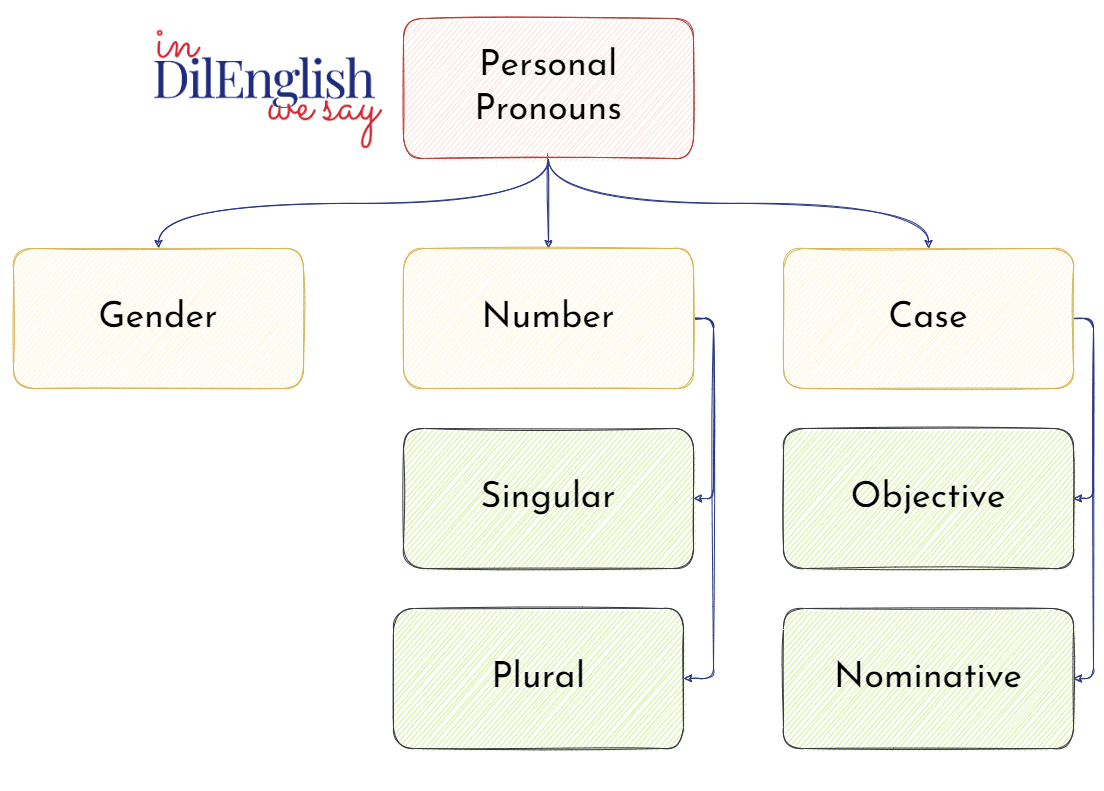Personal pronouns refer to specific persons or things.

Case
The personal pronouns have two cases:
| Nominative Personal Pronouns | Objective Personal Pronouns |
|---|---|
| I, he, she, it, we, you, they | me, him, her, it, us, you, them |
The objective case of the pronouns I, he, she, we are expressed by suppletive forms.
In colloquial speech, me, not I is commonly used as a predicative.
Who is there? It is me.
Number
The personal pronouns have two numbers, singular (l, he, she, it) and plural (we, they).
The second-person pronoun you is both singular and plural.
Gender
The pronouns of the third person he, she, it distinguish gender.
| Male | Female | Inanimate |
|---|---|---|
| He | She | It |
| man, father, uncle, boy, etc. | woman, mother, aunt, girl, etc. | house, tree, cap, etc. |
The pronouns of the third person he, she, it distinguishes gender. Male beings (man, father, uncle, boy, etc.) are referred to as he; female beings (woman, mother, aunt, girl, etc.) are referred to as she; inanimate things (house, tree, cap, etc.) are referred to as it.
Her husband asked few questions and sat down to read the evening paper. He was a silent man.
And then he turned and saw the girl. She was a pale, ethereal creature, with wide, spiritual eyes and a wealth of golden hair. (London)
He did not know what to do with his cap, and was stuffing it into his coat pocket. (London)
In literary style, the general principle is to associate with the pronoun he words indicating strong forces, violent passions, violent actions, big heavenly bodies (wind, fear, love, anger, despair, sun); and to associate with the pronoun she gentler forces, gentler feelings, smaller heavenly bodies (hope, mercy, justice, modesty, moon).
As some nouns denote animate beings of either gender, masculine or feminine (friend, teacher, servant, cousin, etc.), personal pronouns are often used to specify them:
“Tell your servant that he must not use such words” Stella said to me. (Haggard)
Function
Personal pronouns may have different functions in the sentence, those of subject, object, predicative:
I was not free to resume the interrupted chain of my reflections till bedtime. (SUBJECT)
He arranged to meet her at the 96th Street station. (OBJECT)
“Who’s there?”. “It’s me.”. “Who’s me?” “George Jackson, sir.” (PREDICATIVE)
But I think that was him I spoke to. (PREDICATIVE)
